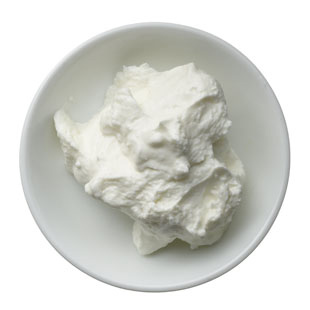In a continued effort to encourage people to eat better and move more, I normally make it a practice to fully address any and every controversial question that comes my way, especially when it comes to working out. One that’s extremely debatable is whether or not it’s best to perform cardio exercise in the morning, specifically for the purpose of weight loss.
I’ll start by simply saying this: While you can lose a substantial amount of weight by getting in a morning bout of cardio, it’s really not that cut and dry. Let me explain further by driving home some key points.
It’s Not Exercising in the Morning that Works, It’s the Act of Exercising While in a “Fasted State”
Performing cardio in a fasted state can greatly enhance fat burning. The “fasted state” essentially means that your body is in a condition during which no food is available to be converted into useable energy. In this state the body breaks down stored fat and converts it into energy, which is ideal if weight loss is your goal.
When you wake up in the morning (as a large majority of people do) your body is technically in a fasted state, feasting on its own stored fat because you haven’t eaten anything for 6-8 (or more) hours. Initiating cardio exercise while in this fat-burning mode can increase the utilization of stored fat, which greatly promotes weight loss.
Related Article: 5 Cheap and Convenient Ways to Burn Fat Fast
Now, to suggest that exercising in the “morning” is best for burning fat is to assume that everyone operates on the same stereotypical clock.
For someone who works overnight (“the twilight shift”), a “morning” workout may be replaced with an evening workout. Similarly, if you’re a DJ at a nightclub who’s not done working until 3:00 or 4:00am, your “morning” workout may not start until noon.
Let me emphasize again that performing cardio exercise in the fasted state is what in fact maximizes fat burning as opposed to the sheer act of exercising in the morning.
What works for one person may not work for someone else.
If morning exercise works for you by all means continue to do it. But, it’s important to understand that there are other ways to increase fat burning with cardio exercise if you’re not a morning person.
Related Article: How to Perform Cardio Exercise the Right Way
Skipping Meals Promotes Maximum Fat Burning During Afternoon or Evening Workouts
Yes, I said it! Skipping meals (breakfast and/or lunch) is a great way to maximize fat burning if you’re unable to work out in the morning. Now, read on before you totally dismiss this notion, as I know it literally goes contrary to everything you’ve previously read or heard.
As I stated earlier, your body is in a fasted state after 6-8 hours of rest. If you choose to perform cardio exercise as soon as you wake up your body will be in a fat-burning mode.
But, what if you don’t exercise when you wake up, skip breakfast, and then perform your cardio at noon?
Won’t your body still be in a fasted state and, therefore, a fat-burning mode?
The answer is yes!
 Although breakfast is presumed to be the most important meal of the day, it’s not. Breakfast literally means, “breaking the fast” and you can “break the fast” at 2:00pm, 3:00pm, 4:00pm, or whenever you choose to.
Although breakfast is presumed to be the most important meal of the day, it’s not. Breakfast literally means, “breaking the fast” and you can “break the fast” at 2:00pm, 3:00pm, 4:00pm, or whenever you choose to.
Personally, my lifestyle involves a form of intermittent fasting called diurnal fasting, which basically means that I refrain from eating during daylight hours. With this lifestyle I skip breakfast and lunch opting instead for a large dinner and a couple of small snack-like meals.
Related Article: Intermittent Fasting: How I Control My Weight By Eating One Meal a Day
Contrary to popular belief, it doesn’t matter how many meals you eat in one day, what time of day you eat them, or how small or large your meals are. Everyone has different food preferences, schedules and lifestyles. Ultimately, what matters is your total food intake and diet quality over the course of the day.
An abundance of research has proven that you can eat anywhere from one and seven meals a day so long as you are: 1) obtaining adequate amounts of carbohydrates, fat, protein, vitamins, minerals, and of course water, and 2) meeting, but not overshooting, your daily calorie needs.
Related Article: Estimating Your Metabolic Rate and Daily Calorie Needs
Since my lifestyle is one during which I fast for a large majority of the day, I perform cardio exercise whenever I want. Interestingly enough, I adopted this lifestyle of diurnal fasting after effortlessly losing 20 pounds in 2 months. During this time I exercised daily at 3:00pm and not in the morning. In fact, I actually lost more weight this way than I’d ever done as an early morning exerciser.
Again, it’s all about doing what works for you!
Eating High-Protein, High-Fat Meals Prior to Cardio Exercise Encourages Maximum Fat Burning
If you’re not a morning person and the act of skipping breakfast or any other meal scares you, maximum fat burning during cardio is easily achievable with a high-protein, high-fat diet, at least prior to your workouts.
Compared to protein and fat, the body preferentially burns carbohydrates as they can easily be converted to a simple sugar called glucose, which is the body’s preferred source of energy. When carbohydrates are unavailable the body’s stored fat is mobilized into the bloodstream and transported to the liver where it’s broken down into fre’e fatty acids that are used for energy.
Related Article: Macronutrients: Three Key Essentials of Healthy Eating
Believe it or not, this process continues when high-fat and high-protein foods are consumed in place of carbohydrates. In light of this nutrient “hierarchy”, when you’re really trying to maximize fat burning for the purpose of weight loss and you don’t have the luxury of performing cardio exercise in the morning, you can opt for eating foods that are high in healthy, natural fats and high-quality protein, at least until your work out is done.
 Some great high-fat and/or high-protein options include whole eggs or egg whites, Greek-style yogurt, oily fish (tuna, sardines or salmon), nuts or seeds. If you must consume carbohydrates, opt for those that are relatively low in calories and sugar like leafy green and cruciferous vegetables, berries or rolled oats.
Some great high-fat and/or high-protein options include whole eggs or egg whites, Greek-style yogurt, oily fish (tuna, sardines or salmon), nuts or seeds. If you must consume carbohydrates, opt for those that are relatively low in calories and sugar like leafy green and cruciferous vegetables, berries or rolled oats.
When it comes to working out everyone has an opinion based on what works for him or her. While performing cardio exercise in the morning is an effective weight loss strategy for those who are able to, it’s still possible to lose the same amount of weight (or more) by exercising during the afternoon or evening hours.
Do what works for you!
Just get the workout in!
If a morning workout doesn’t excite you, try some of the strategies I’ve described here and experience real success as I did and many other “non-morning” exercisers do.







